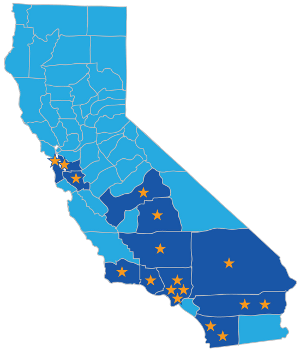On the heels of the tremendous momentum achieved by the Millionaires Tax coalition, an agreement with Governor Brown resulted in a merged revenue-generating measure. In just four weeks California Calls and our partners collected thousands of signatures to help qualify the new measure. Union allies collected over 200,000 volunteer signatures. On May 9, more than 1,470,000 signatures were submitted to qualify the Schools and Local Public Safety Protection Act of 2012 for the November ballot.
A core group of organizations have been meeting and developing plans for how we can take the momentum built by the Millionaires Tax and transform it into organized support to win the merged measure, now called The November 2012 Schools and Local Public Safety Act, and set the stage for longer term tax and fiscal reform.
Reorganizing as the “Reclaim California’s Future Coalition,” the strategy is to build a growing, visible coalition of community-based groups and unions promoting the measure and developing a field and online program that will excite and turn out our base: low income communities, people of color, immigrants, young voters, and faith voters. Currently, the steering committee for this effort is comprised of: ACCE Action, APEN Action, California Calls Action Fund, California Partnership, CFT, Courage Campaign, PICO California and SEIU 1021.
With a severe shortfall in expected state revenues, the state legislature is now considering an $8.3 billion in devastating budget cuts to Medi-Cal, CalWORKs, IHSS, child care, the courts and the Cal Grant college financial aid program. It makes clear the critical urgency of passing the merged revenue measure in November. Without it, an additional $6.1 billion in “trigger cuts” are proposed, further decimating both California’s education and safety net systems.
The revised budget also points to a continuing strategic battle on what the long-term solutions to the state’s chronic budget crisis should be. Many of us do not accept that the only choices are raising moderate new revenue and more “austerity” cuts. There is a whole system of corporate tax loopholes and commercial property tax disparities that could and should provide critical financial resources to solve the ongoing budget crisis. Ultimately, we want to build power between now and November to wage and win permanent and lasting solutions to the ongoing fiscal dilemma in 2012 and beyond.



